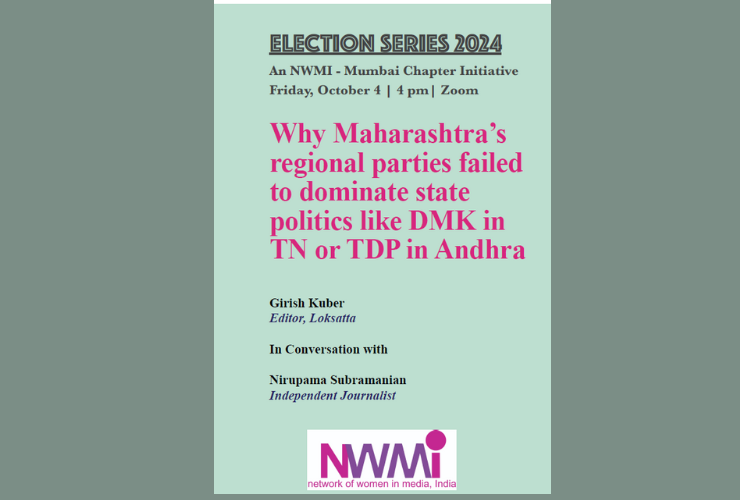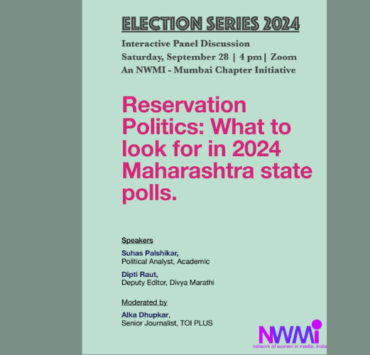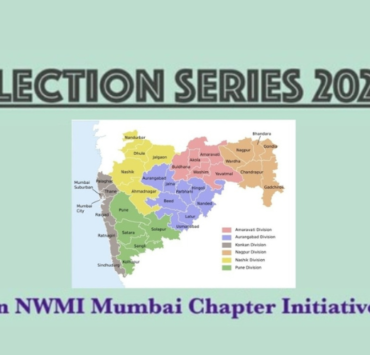
By Editors

On October 4, 2024, Loksatta editor Girish Kuber in a conversation with senior journalist Nirupama Subramanian looked at why regional parties were finding it difficult to dominate in Maharashtra, unlike their counterparts in other parts of the country, such as the Dravida Munnetra Kazhagam (Tamil Nadu), the Telugu Desam Party (Andhra Pradesh) or the Trinamool Congress (West Bengal).
Kuber argued that people from Maharashtra tended to be content at being “No.2” and subservient to Delhi. For example, senior socialist leader Madhu Dandavate had refused the prime minister’s post, not wanting to be disloyal to his party leadership. Other senior Maharashtra’s leaders like Y B Chavan, Shankarrao Chavan and even Sharad Pawar also came close to the top job, but failed to make it.
With reference to the Shiv Sena in Maharashtra, Kuber said that unlike the DMK, the TDP, and the TC that represented regional identities and had strong economic agendas, the Shiv Sena was born more as a reaction against feeling threatened first by South Indians and later by North Indians. It played the victim card with no economic policy in place.
Kuber felt that Sena had become disconnected from its core Marathi voter base; it sided with mill owners against the Maharashtrian textile workers, and backtracked on key issues like the Enron and Nanar refinery projects despite the major environmental impact on the coastal Konkan belt of Maharashtra. It did not help the Sena’s image that it was viewed as the B-team of the Congress, being propped up by the Congress whenever it faced factionalism.
Kuber also argued that Maharashtrians as a group have tended to have a national outlook right from the times of Shivaji, who called his kingdom Hindavi Swaraj. The Maharashtrian ethos also contributed to the birth of the Congress.
However, Kuber said, the regional parties needed to be strengthened for the sake of India’s federalism.




